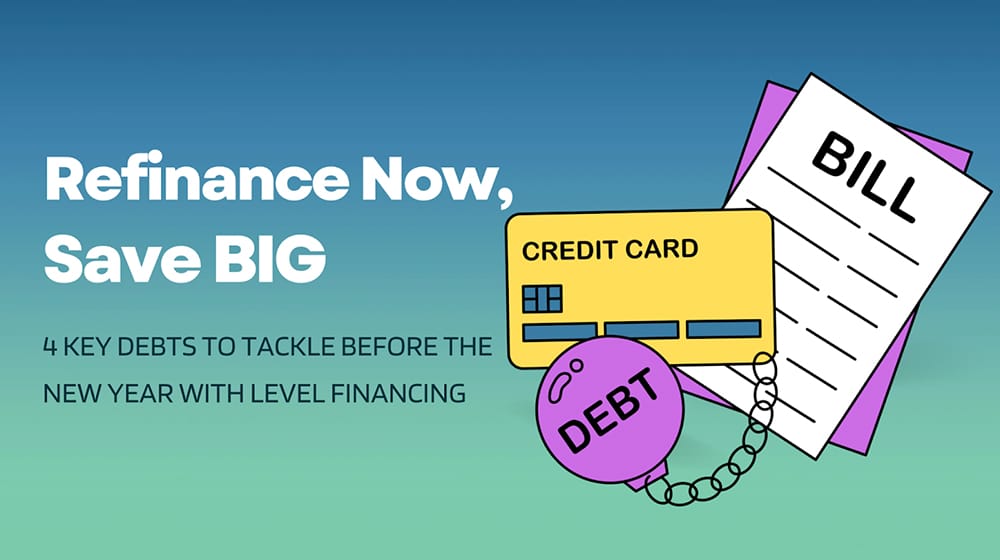Credit card debt is a major cause for concern for many people across the United States. Figures from the Federal Reserve Bank of New York put the total us credit card debt at a staggering $1.031 trillion. The severity of this issue is shown in recent data.
The average credit card balance per person is $5,733, with an average annual percentage rate (APR) estimated at 20%. Additionally, the delinquency rate (30+ days past due) on credit card balances has increased, reaching an all-time high of 4.17% in the first quarter of 2023, a 0.88% increase since Q1 2022. Again, that is almost double the 10-year average of 2.28%. Also, serious credit card delinquencies (90+ days past due) rose from 1.61% in Q3 2022 to 2.26% in Q1 2023.
It’s not uncommon for borrowers not to even know the amount of interest they pay on their cards. However, borrowers must comprehend the financial implications of these figures. Consequently, accumulating credit card debt can lead to problems such as compounding interest rates and undue financial stress.
Importance of Budgeting
Many people often believe a budget is limiting and tells them what they shouldn’t do. But a budget is liberating. It tells you what you should do. A budget provides the organization needed to manage your expenses effectively.
Escaping the rat race of settling credit card debt starts with creating and sticking to a simple and well-structured budget. Creating a realistic budget requires assessing and categorizing your income and expenses. More so, distinguish between fixed costs, like rent and utilities, and variable costs, such as grocery costs or entertainment.
Tracking expenses can be simplified through the use of spreadsheets or mobile apps. Endeavor to regularly review your budget and adjust it as needed.
Key Takeaway: Credit card debt is a major concern. To avoid being overburdened by credit card debt, it is important to develop the habit of budgeting and tracking your expenses regularly. This will help you understand your financial situation and make smart decisions about how to manage your money effectively.
Read More: How to Stop Using Your Credit Card for Good

Paying More than the Minimum
Paying the minimum amount due on your credit card statement might offer temporary relief; nevertheless, it’s a trap that will lead to a continuous cycle of debt. The reveal is that a significant percentage of each minimum payment goes towards servicing interest, leaving the principal balance practically untouched.
To illustrate, let’s assume you have a credit card with a 24% APR and another with an 18% APR. While you continue to make minimum payments on both cards, allocate more funds towards the higher interest rate card. When that card is paid off, channel the funds to the lower-interest-rate card.
Key Takeaway: Making the minimum payment on your credit card can be a costly mistake. It’s important to prioritize paying off cards with higher interest rates first and then channeling those payments toward lower-interest-rate cards.
Prioritizing High-Interest Debts
Facing high-interest debts, head-on can significantly lessen your financial strain. Prioritizing these debts ensures you’re paying off the most expensive ones first, saving you money in the long run. Imagine having more financial breathing room and less interest accumulating as you work through your debts.
Consider arranging your debts in descending order of interest rates and directing your surplus funds toward the highest interest-bearing accounts. This is known as the “debt avalanche.”
Key Takeaway: Prioritizing high-interest debts over low-interest ones can help you reduce your overall financial burden and free up more of your funds. This strategy is known as the ‘debt avalanche’ and involves paying off the most expensive debt first, followed by lower-interest rate debts.

Seeking Professional Help
Managing credit card debt can become overwhelming for some people. This is where credit counseling agencies can offer valuable assistance. They provide expert guidance on debt management, budgeting, and negotiation.
If you’re considering contacting a credit counseling agency, choose a reputable one. Find organizations affiliated with well-established industry associations. Also, avoid those that promise quick fixes or request exorbitant upfront fees. Experienced credit counselors can offer personalized advice specific to your financial situation.
Key Takeaway: Credit counseling services can help you manage mounting debts and offer personalized advice on budgeting and debt negotiation. When seeking professional help, be sure to research reputable credit counseling agencies and avoid those that offer quick-fix solutions or charge exorbitant fees upfront.
Utilizing Balance Transfer Cards
Balance transfer cards can be a lifeline for those struggling with credit card debt. These cards allow you to move your existing balances to a new card with a lower or even zero percent introductory interest rate. While this can temporarily relieve, exercise caution and read the fine print.
Before taking this route, you should consider the balance transfer fees, regular interest rate after the introductory period, and the potential impact on your credit score. When seeking balance transfer options, it’s very important to understand the terms and limitations of the new card.
Key Takeaway: Balance transfer cards can be a great way to reduce the amount of interest you pay on existing credit card debt. Before committing, it’s important to understand the fees, regular interest rate after the introductory period, and potential impact on your credit score.

To Sum It Up
Although many people deal with credit card debt, it’s important to escape the bandwagon and get back on solid financial footing.
You can significantly reduce your debt by sticking to a well-organized budget, making extra payments, paying off high-interest debts first, getting professional advice when necessary, and carefully analyzing balance transfer options.
The most important step you can take now to ensure a better financial future is to commit to paying off your credit card debt.




